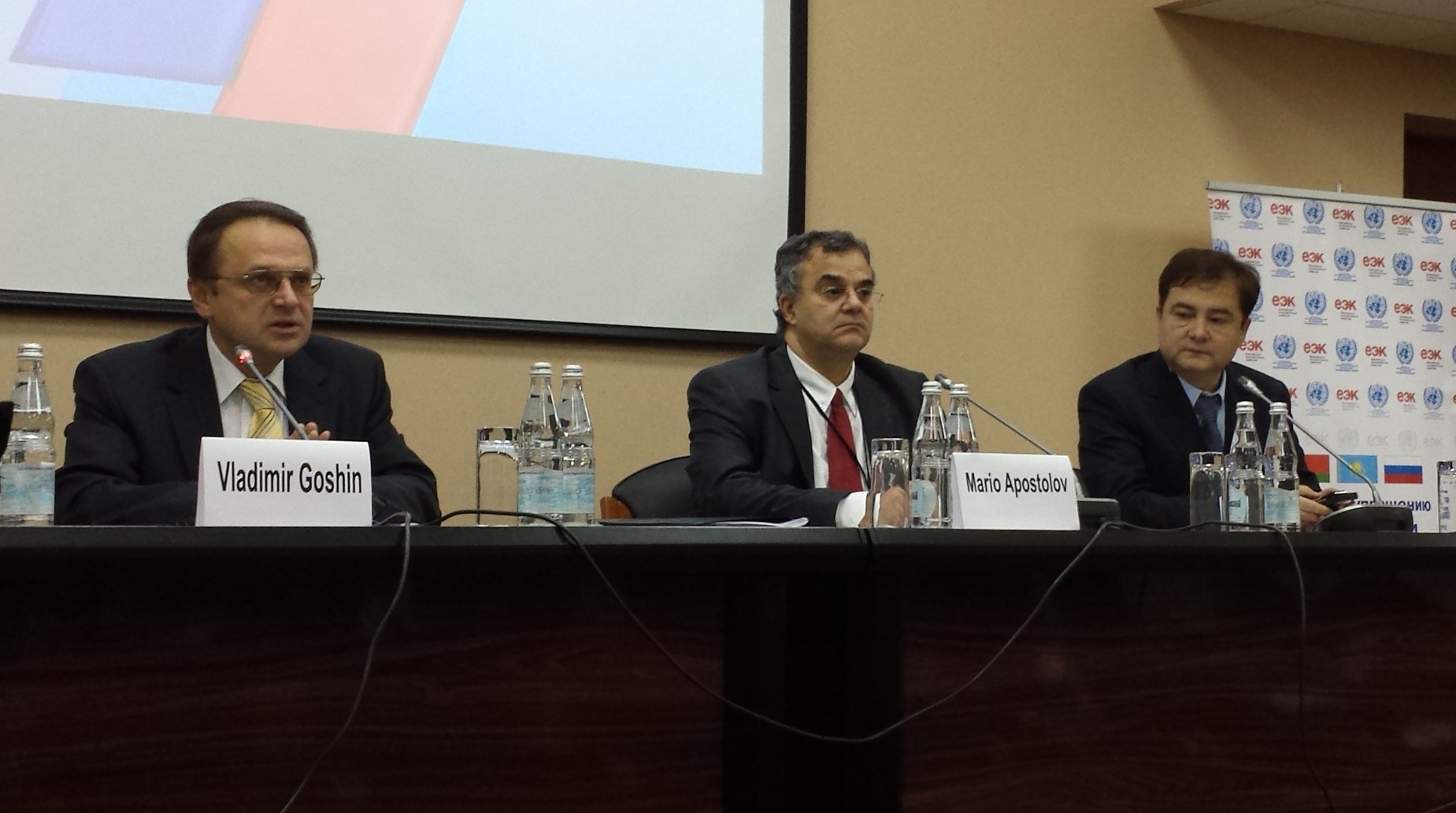
UNECE continued its collaboration with the Eurasian Economic Commission (EEC) in trade facilitation through a joint seminar on Single Window strategic planning, held on 25 and 26 November 2013 in Moscow. Vladimir Goshin, EEC Commissioner (Minister) for Customs, qualified the seminar as an important step in better understanding the Single Window concept in the EEC countries (Belarus, Kazakhstan and Russian Federation). He will present to the EEC Collegium for endorsement the draft strategic plan for establishing a Single Window enabling environment, prepared at the seminar. He emphasized the existing political will for reform and trade facilitation.
UNECE stressed the need to build into EEC’s strategic planning the use of established international (UNECE and WCO) data exchange standards. Current developments within the EEC include the postponement by Kazakhstan of the implementation of its Single Window project to 2014-2015. Belarus and Russia are making electronic customs declaration mandatory as of January 2014. Elena Bormotova, Head of IT at Russian Customs, reported that Russian Customs are working on a holistic Single Window approach that would enhance Customs, trade and transport related information flows. Their approach is to first focus on one location (e.g. a port) and then broaden the project to the national level, an approach also adopted by Ukraine following UNECE’s advice.
The seminar reinforced the efforts to create effective public institutions for foreign trade in the Customs Union. Central Asian countries occupy the last places in the World Bank’s Doing Business Trading across Borders index (Kazakhstan is this year 186th out of 189 economies, and Kyrgyzstan is 182nd), behind some of the poorest countries in the world, for example in Africa. Belarus and Russia are doing better, but still need much to reach the top 20 countries, as suggested by Russia’s President Vladimir Putin. Politicians are increasingly aware that the situation in foreign trade procedures does not correspond to their overall level of development and that they need to take action. The private sector is also aware and is calling for the implementation of trade facilitation. During the seminar, a representative of Russia’s Chamber of Commerce and Industry requested a Single Window now, not in 5 years, and on the scale of the whole Customs Union.
Leading experts presented the experiences of the European Commission and the Association of South-east Asian Nations (ASEAN) in planning and developing an enabling environment for Single Window, as well as the Single Window models of the Republic of Korea, Singapore, France and the United States. EEC will extract the key elements of these models in planning its Single Window implementation.
“A fundamental premise for efficient economic activity is to have good rules,” said Jonathan Koh, Director of the Trade Facilitation Centre of Excellence, Singapore. Trade Facilitation and the Single Window have contributed to the success of Singapore, the first economy in the Trading across Borders index for seven years in a row, he said.
Zahouani Saadaoui, from the European Commission’s DG TAXUD, thanked UNECE for providing a bridge between the European and Eurasian Economic Commissions in a key area fostering economic efficiency and institutional development, hoping that this would be the beginning of long term cooperation. The representatives of Kazakhstan invited UNECE to hold the next event in Kazakhstan.
For more information, please visit: http://www.unece.org/index.php?id=33993
Or contact Mario Apostolov, Regional Advisor, UN ECE Tradetel.: +41 (0)22 9171134, e-mail: [email protected]

